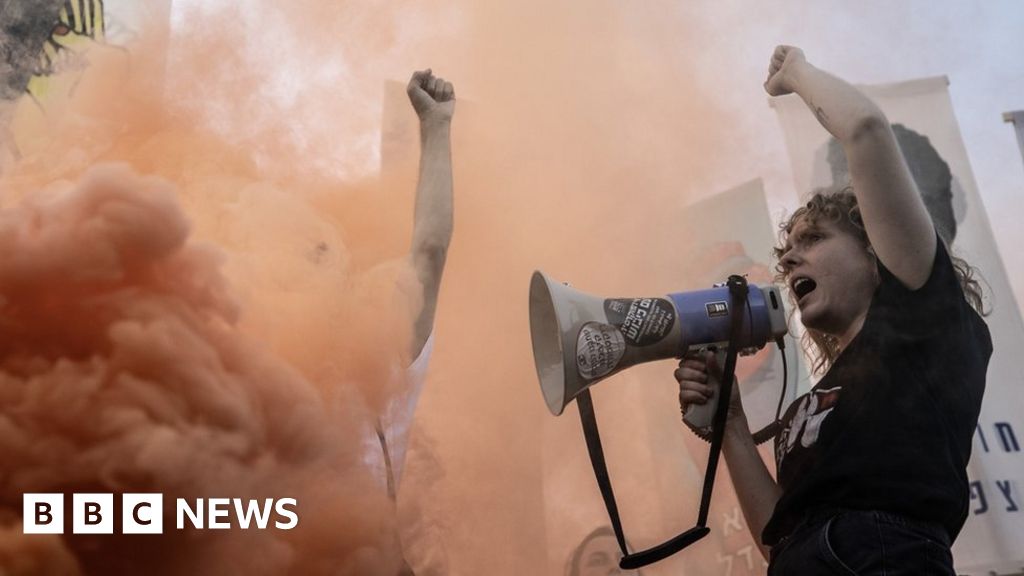
- Written by Shaima Khalil in Jerusalem and Ali Abbas Ahmadi in London
- BBC News
Image source, Getty Images
A protester outside the Supreme Court in September last year
Israel's Supreme Court overturned a controversial judicial reform that sparked nationwide protests last year against Netanyahu's government.
This change would have limited the Supreme Court's power to strike down laws it deemed unconstitutional.
Critics say this would have severely undermined the country's democracy by weakening the judicial system.
There is strong opposition to Netanyahu's current government, which is seen as the most right-wing in Israel's history.
The Supreme Court's decision to repeal the law passed by the government in 2023 comes after months of internal unrest.
In July, the government passed what is now known as the “reasonableness” bill.
This removed the power of the Supreme Court and lower courts in Israel to overturn government decisions that they considered “highly unreasonable.”
The law caused widespread anger and division, prompting hundreds of thousands of demonstrators to take to the streets to demand the repeal of the reforms and the resignation of Prime Minister Benjamin Netanyahu. Organizers said the weekly protests were the largest street demonstrations in Israel's history.
At the time, hundreds of military reservists – including Air Force pilots – threatened to refuse to report for duty, leading to warnings that this could weaken Israel's military capabilities.
A Supreme Court statement said that 8 out of 15 judges ruled against the law, adding that it would have caused “serious and unprecedented harm to the basic characteristics of the State of Israel as a democratic state.”
Israeli Justice Minister and architect of the law Yariv Levin criticized the judges for “taking all the powers into their own hands” and described their decision to overturn him as undemocratic.
The “reasonableness” law was part of a broader series of judicial reforms introduced by the Netanyahu government.
This would have weakened the Supreme Court's power to review or overturn laws, enabling a simple majority of a single member of the Knesset (Parliament) to overturn such decisions.
The government also tried to gain greater power in appointing judges, and to remove the requirement that ministers obey the advice of their legal advisors.
Netanyahu said changes are needed to fix the balance between judges and politicians.
The Supreme Court ruling threatens to further undermine confidence in his government. Netanyahu's Likud Party said the decision contradicts “the people's will for unity, especially in times of war.”
The Israeli leadership is under internal pressure because of its perceived failure to prevent the Hamas attack on October 7, and because it has so far proven unable to rescue all the Israeli hostages taken to Gaza.

“Travel specialist. Typical social media scholar. Friend of animals everywhere. Freelance zombie ninja. Twitter buff.”





More Stories
Taiwan is preparing to face strong Typhoon Kung-ri
Israel orders residents of Baalbek, eastern Lebanon, to evacuate
Zelensky: North Korean forces are pushing the war with Russia “beyond the borders”